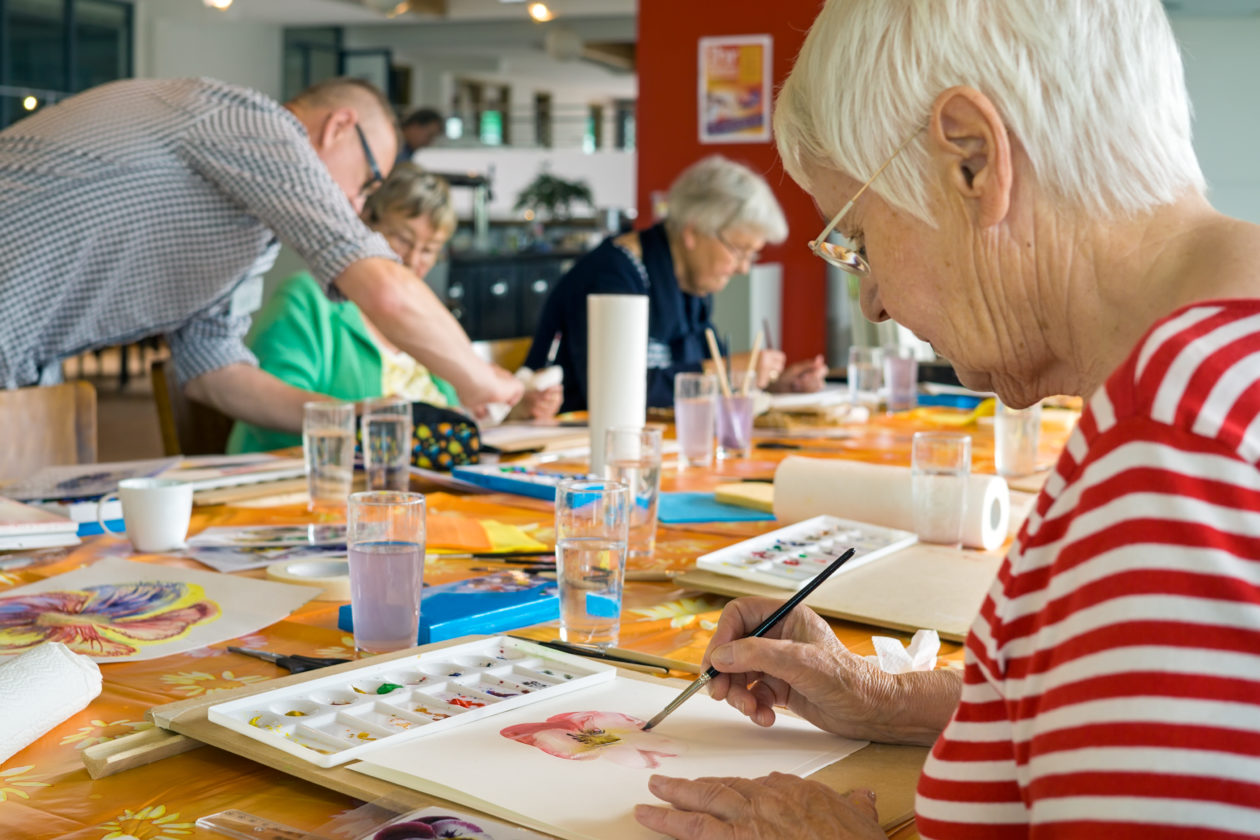About CST
Cognitive Stimulation Therapy (CST) is a non-pharmacological intervention to improve memory and quality of life for people with dementia.

What is CST?
CST, or ‘Cognitive Stimulation Therapy’ is a brief treatment for people with mild to moderate dementia. The stimulation is provided by engagement in a range of activities and discussions in a group. The aim is to improve cognitive and social functioning.
How does it work?
The CST treatment programme is structured and outlined in a manual.
The basic treatment programme is 14 sessions, run twice weekly over 7 weeks. The sessions aim to actively stimulate and engage people with dementia, while providing a optimal learning environment and the social benefits of a group.
Consistency is created between sessions through using a structure with the same warm-up activities, an orientation board (containing information about the group) and having a ‘theme song’. There is also a maintenance programme available with a manual.
How was CST developed?
CST is an evidence-based treatment. It was designed following extensive evaluation of research evidence for non-pharmacological treatments. CST has been found to improve cognition. The size of the effect is similar to currently available anti- dementia drugs. (World Alzheimer’s Report, 2011). It can also improve well-being.
It is the only non-pharmacological treatment recommended in the internationally recognized UK NICE guidelines.
Who can deliver training for CST?
CST treatment can be administered by anyone working with people with dementia.
The skills and experience of CST facilitators are central to the experience and effectiveness of CST. There are 18 ‘Key Principles” for facilitators: person-centred, involvement, choice, opinions rather than facts, using the senses, maximizing potential, respect, inclusion, fun, using reminiscence, always having something to touch, and building and strengthening behaviours. These are explained in the manual.
What countries are running CST?
CST was developed in the UK, and it has been adopted in 23 countries.
In New Zealand CST was first used in the Hawkes Bay. In 2013-2014 Gary Cheung and Kathy Peri conducted a feasibility study funded by Te Pou and they have now established New Zealand CST training workshops.

